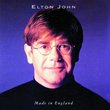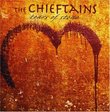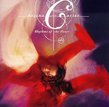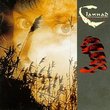| All Artists: Tony Banks, Mike Dixon, London Philharmonic Orchestra Title: Seven: A Suite for Orchestra Members Wishing: 2 Total Copies: 0 Label: Naxos Release Date: 4/20/2004 Genres: Pop, Classical Styles: Easy Listening, Symphonies Number of Discs: 1 SwapaCD Credits: 1 UPC: 747313246625 |
Search - Tony Banks, Mike Dixon, London Philharmonic Orchestra :: Seven: A Suite for Orchestra
 | Tony Banks, Mike Dixon, London Philharmonic Orchestra Seven: A Suite for Orchestra Genres: Pop, Classical
Famous for his role as keyboard player in the progressive rock band Genesis, Tony Banks has always been fascinated by the idea of writing orchestral music. Five of the seven pieces in this orchestral suite were written spe... more » |
Larger Image |
CD DetailsSynopsis
Album Description Famous for his role as keyboard player in the progressive rock band Genesis, Tony Banks has always been fascinated by the idea of writing orchestral music. Five of the seven pieces in this orchestral suite were written specifically for the Seven project; the remaining two were older pieces. Throughout the seven movements Banks creates intense orchestral sound pictures. The calm serenity which characterizes the main themes of the separate movements is often contrasted with uncomfortable stormy turbulence, the overall result being a scenic overview of orchestral colours and timbres. Similarly Requested CDs
|
CD ReviewsBanks Shows His Stuff Mark D Burgh | Fort Smith, AR United States | 06/26/2004 (5 out of 5 stars) "I've followed Tony Banks' music for a long time now - except for the dismal 80's Genesis - and I wasn't prepared to give Seven more than a cursory listen and say "very nice." And to be honest, that's how I approached this music. The last Tony Banks music I honestly liked was on his first solo album back in 1979. But, as I listened to Seven, I heard more than I anticipated, and eventually, this music grew on me. I have to say now, that despite the long and rather spotty - to be charitable - record of English rock musicians writing for orchestras (Keith Emerson, Rick Wakeman, Jon Lord, Yes, Pink Floyd, Moody Blues, etc) that Banks transcends his past and with his suite creates mature music in the vein of Ralph Vaughn Williams and Edward Elgar. In his notes, Banks says that he didn't want to create a typical piece with a rock plays soloing over an orchestral backing. Rather, he wants to write integrated orchestral works with their own structure and internal logic. This Banks does with more elan than I thought possible. The energy, melodies, and orchestration of this music is impressive and irrespressible. The first piece, Spring Tide, gushes forward, a torrent of music that sets the tone for the rest of the suite, a series of pastoral mediations which have always been at the heart of his music. The more I listened to this music, the more I liked it, until now, when I play this album, I find myself hearing all the things I loved about Banks's work with Genesis, but now, thoughtfully recast into the tradition of English orchestral composers and not King Crimson. I can heartily recommend this music to any long-time Genesis fan, or even to classical music lovers. I hope that Tony Banks will continue writing more orchestral work." Tony Banks Of Genesis: Classical Composer! Alan Caylow | USA | 05/22/2004 (5 out of 5 stars) ""Seven: A Suite For Orchestra" is the debut classical album by the one-and-only Tony Banks, the keyboard player for Genesis, and it consists of five pieces that Tony wrote specifically for the album, plus two older pieces Tony had lying around that hadn't found a home yet. It's performed by the London Philharmonic Orchestra, conducted by Mike Dixon, with Tony chipping in here & there on piano. And it is absolutely gorgeous music. It's impossible for me to single out a single track. All I can tell you is that this music is breathtakingly beautiful. And if you're familiar with Tony's work in Genesis---and bonus points are awarded to you if you know his solo material as well---you will *instantly* recognize the powerful melodies, moods, and musical nuances that couldn't be written by anyone else but Tony Banks. And, being released on the Naxos budget label, the price of this CD is practically a steal, so you're definitely getting a GREAT deal in purchasing it. I know that Tony had this classical album in the pipeline for many years, and, as a longtime fan, I wondered if it would *ever* be released. But here it is at last, and I can happily say to you that it was so worth the wait. With "Seven: A Suite For Orchestra," Tony Banks takes a brilliant first step as a classical composer, and I'd love to hear more. It's a beautiful classical album, and I can't recommend it highly enough. Congratulations, Tony!" Superb Orchestral Work by an Excellent Composer Jerry F. | San Diego, California | 05/12/2004 (5 out of 5 stars) "The bridge between classical music and rock is littered with the wrecks of well-intentioned hybrid works that unfortunately end up somewhere in the middle ground between both genres. Often, orchestras will play "the music of . . ." rock acts such as the Rolling Stones, or rock artists themselves will try their hand at composing pieces for an orchestra. Too often the former ends up sounding like muzak and the latter ends up being largely arranged and orchestrated by others with dubious results. In the end, most fail to engage the listener musically.Looking at this past history, it is a brave person who seeks to cross the path between these worlds. Seven: A Suite for Orchestra, though, stands out as a prime exception to the general rule. Composer Tony Banks is perhaps best known for his writing and keyboard playing with the progressive rock group Genesis over the last three decades. Seven is his first full orchestral album, and represents the best example of a rock artist crossing over into classical thus far. Generally, there are several reasons why this work succeeds. Banks' compositions have always favored more complex musical structures that lend themselves to expansion with an orchestra, compared with normal pedestrian three-chord rock structures. Many of Banks' previous compositions were laden with classical influences such as Rachmaninov and Ravel. Additionally, as Banks explains in the notes accompanying the album, he wrote and arranged the pieces himself and minimally used an orchestrator, Simon Hale. The pieces were written for an orchestra, and are not rock compositions later adapted by an independent arranger. Banks had previously done orchestral music for the film entitled The Wicked Lady in 1983, and instrumental music for several film scores thereafter. Banks also avoided making the album a display of instrumental virtuosity with mere orchestral coloration in the background. Rather, the emphasis here is on composition. Where Banks plays piano, he does so minimally and only to augment the orchestra. The music on Seven also does not pander to the trendy "pop" classical pastures of acts like Bond, and instead has depth and substance. Finally, Banks himself is a listener and aficionado of classical music, and thus Seven is not some whimsical foray into a new genre.As for the music on Seven, there are seven separate songs that can stand on their own, yet which work as a whole. The musical influences range from Banks' own instrumental and film work to the English Romanticism of Vaughan Williams. There is also a touch of other 20th Century composers, including Sibelius and Shostakovich. Banks plays piano on three of the tracks: Spring Tide, The Ram, and The Spirit of Gravity. Black Down, which is named after a hill located near Banks' residence, ranks highly with this listener, as it evokes a dark romanticism throughout. Spring Tide features several interlocked melodies, and its introduction is also an appropriate opening for the album. Another favorite is The Spirit of Gravity, which like much of Banks' previous instrumental work, progresses through several differing parts while remaining focused in purpose.The London Philharmonic Orchestra was appropriately selected by Banks-they assist throughout with fervent playing of each piece. The sound is excellent and results from co-producer Nick Davis along with the location of the orchestral recording at Air Lyndhurst, which is an advanced studio with an old Victorian church as its "live room." Even the painting "Le Pays Avec Arbres" by the late Stefan Knapp was selected by Banks personally and appropriately adorns the cover, thereby completing the whole package.Therefore, Seven is highly recommended by this listener as a superb work by an excellent composer who should do more within the classical genre."
|

 Track Listings (7) - Disc #1
Track Listings (7) - Disc #1








